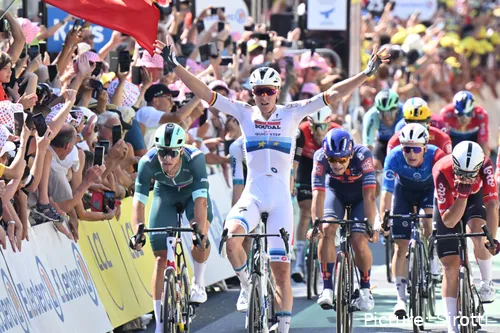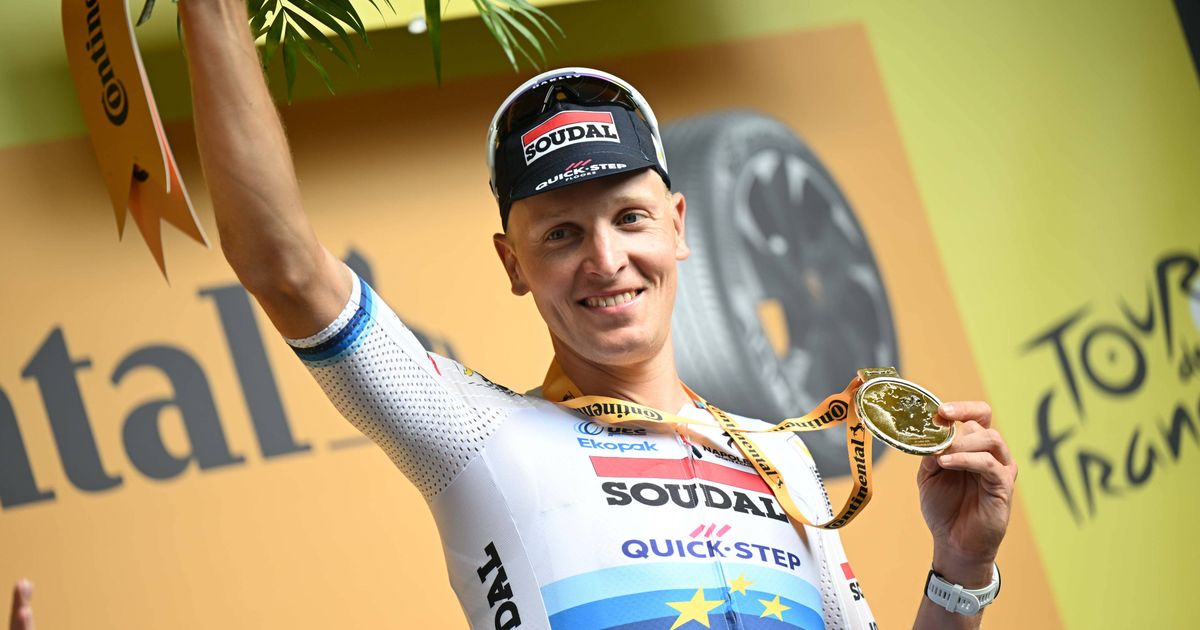“On paper, I see about six sprint opportunities… but we’ll see if they really are.” His biggest concern is in the last week, which he describes as “extremely hard,” remarking on a penultimate stage that he considers unnecessarily extreme. His analysis is clear: the design calls for minimizing the space for the fast men.
The Belgian sees an obvious pattern: “They’re looking for fewer sprints and more spectacle,” he says. What surprises him is that the systematic hardening of the courses doesn’t benefit the big climbers either: “They are also exhausted in the final phase and need to recover. It doesn’t always have to be harder to be pretty.”
Still, he knows his ability to influence is limited: “I’m not going to change the race,” he admits. To illustrate his frustration, he resorts to an image that has gone viral: “In boxing, lightweights never face heavyweights. In cycling, they do.”
A metaphor that sums up what he feels when faced with courses that seem designed to exclude pure sprinters.

Tim Merlier fears the disappearance of sprints from the Tour de France and cycling
A forbidden future for sprinters?
Merlier fears that the current evolution of cycling will leave out profiles like his. He wonders if the day will come when only lightweight riders will have a real chance to shine in the big races, a drift he considers sad and impoverishing for the sport.
He sees it also reflected in the World Champtionships routes. Since Peter Sagan won the title in 2017 in a reduced sprint, no sprinter has worn the rainbow again. “Every generation of sprinters should have at least one real chance. I’m afraid that chance will never come for me,” he admits.
Even when Jan Bakelants hints that Abu Dhabi 2028 could be his chance, the two ironize about the possibility of a mountain designed for Pogacar even appearing there. “They’re working on it,” Merlier adds with acid humor.
Beyond the World Championships, Merlier has another clear objective: to complete the trilogy of winning stages in the three Grand Tours. He only lacks the Vuelta a España, a race he has been chasing for a long time. “I’ve been asking to race it for several years,” he confesses.
He recognizes, however, the mental wear and tear that comes with stringing together two Grand Tours. He tried in 2021, the year he took stages in the Giro and Tour, but didn’t finish either: “That’s when I earned that reputation,” he jokes.
Although age will be a factor – in 2028 he will be close to 36 – he doesn’t feel his performance is declining. “I’m not in decline, I’m not nervous in the sprints. Retiring is not in my plans,” he assures.

